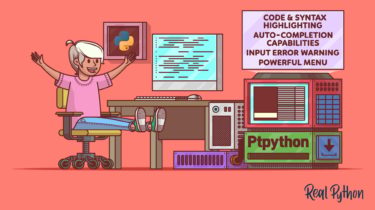Using the bpython Enhanced REPL
The standard Python interpreter lets you run scripts from files or interactively execute code on the fly in a so-called read-evaluate-print loop (REPL). While this is a powerful tool for exploring the language and discovering its libraries through instant feedback on your code inputs, the default REPL shipped with Python has several limitations. Luckily, alternatives like bpython offer a much more programmer-friendly and convenient experience. You can use bpython to experiment with your code or quickly test an idea without […]
Read more

